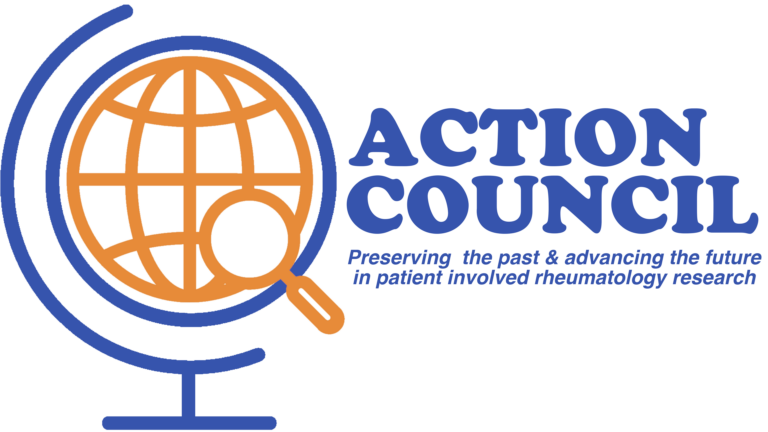As the decade progresses, international efforts to expand the patient voice in rheumatology research continues. As a result, more programs that focus on patient-reported needs, guidance for involving patients in research, and reports that assess patient involvement emerge.
- 2013: Patient-Centered Outcomes Research Institute (PCORI)PCORI is an independent nonprofit, nongovernmental organization and was authorized by Congress in 2010. PCORI is the largest funder of comparative effectiveness research (CER) in the United States with the mandate to improve the quality and relevance of evidence available to help patients, caregivers, clinicians, employers, insurers, and policymakers make better-informed health decisions. In addition to requiring patient and stakeholder engagement in PCORI funded research, PCORI also engages the public through its own institutional activities, such as Merit Review, which includes patients and stakeholders as reviewers of research applications, ensuring dollars spent are aligned with research outcomes that are meaningful to the patient population. www.pcori.org began the novel funding opportunity, Eugene Washington Engagement Awards ProgramThe Eugene Washington PCORI Engagement Award program, named in honor of the first chair of PCORI’s Board of Governors, is intended to bring more patients, caregivers, clinicians, and other healthcare stakeholders into the research process. The goal is to support projects that will build a community better able to participate in patient-centered outcomes research (PCOR) and comparative clinical effectiveness research (CER) and serve as channels to disseminate study results. www.pcori.org/engagement , which supports projects that will build a community better able to participate in patient-centered outcomes research (PCOR) and comparative clinical effectiveness research (CER) and serve as channels to disseminate study results. Example of award: Matching Actions to Needs: What Matters Most to the Arthritis Community?
 – Arthritis Foundation, United States
– Arthritis Foundation, United States - 2014: Canada’s Strategy for Patient-Oriented Research (SPOR)Endorses the active partnership of patients, researchers, health professionals and decision-makers in research so as to build a sustainable and accessible health care system that optimizes the health of Canadian citizens. cihr-irsc.gc.ca publishes A Resource Guide for Research Teams and Networks
 , a living guide to support researchers, decision-makers and other relevant stakeholders involved in a wide range of SPOR-related activitiesThis resource aims to:
, a living guide to support researchers, decision-makers and other relevant stakeholders involved in a wide range of SPOR-related activitiesThis resource aims to:
1) Clarify key concepts and terms relevant to involving patients in health research such as what we mean by patients, the public and stakeholders, and the different levels and types of involvement, and the rationales and perceived benefits of patient involvement
2) Describe, at a very high level, the current state of the evidence about patient engagement with respect to the effectiveness of different methods in relation
to process and outcome measures
3) Assemble in one place, a selection of resource documents collected from leading patient engagement organizations around the world to provide basic guidance for researchers about principles and methods for involving patients
in health research. - 2014: Group for Research and Assessment of Psoriasis and Psoriatic Arthritis (GRAPPA)Group for Research and Assessment of Psoriasis and Psoriatic Arthritis (GRAPPA) is organized exclusively for non-profit, educational, and scientific purposes, specifically to facilitate the sharing of information related to psoriasis and psoriatic arthritis, networking among different medical disciplines that see psoriasis and psoriatic arthritis patients, and to enhance research, diagnosis, and treatment of psoriasis and psoriatic arthritis.
www.grappanetwork.org publishes Patient Participation in Psoriasis and Psoriatic Arthritis Outcome Research report , co-authored by Patient Research Partners (PRPs)Patient Research Partner (PRP) is defined as a person with a relevant disease who participates or has participated as an active research team member on an equal basis with professional researchers, thus adding the value of experiential knowledge to a research project. After this publication, GRAPPA publishes annual patient reports through 2018.
, co-authored by Patient Research Partners (PRPs)Patient Research Partner (PRP) is defined as a person with a relevant disease who participates or has participated as an active research team member on an equal basis with professional researchers, thus adding the value of experiential knowledge to a research project. After this publication, GRAPPA publishes annual patient reports through 2018. - 2014: Cochrane Musculoskeletal Consumer Group (CMSG)Formed in 1993, enlisting patient systematic reviewers to join health care professionals and researchers belonging to Cochrane. “The feedback provides a layperson’s perspective to complement the feedback provided by our clinical experts.” musculoskeletal.cochrane.org updates recommendations to aid knowledge translation and exchange between clinicians and consumers
 .
.
CoPI: Patient Research Partners (PRPs), Patient-Oriented Research (POR), Patient-Centered Outcomes Research (PCOR)
Tools: Guidance – patient-researcher engagement; Reports – patient researcher engagement, patient engagement, and dissemination; Instruments – patient engagement
Context: Patient-reported outcomes (PROs), Clinical Effectiveness Research (CER)/decision science, dissemination/knowledge translation
